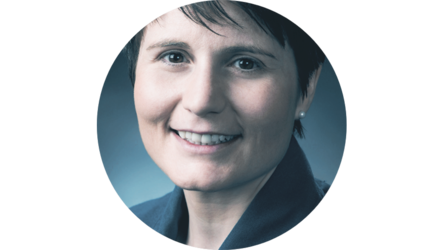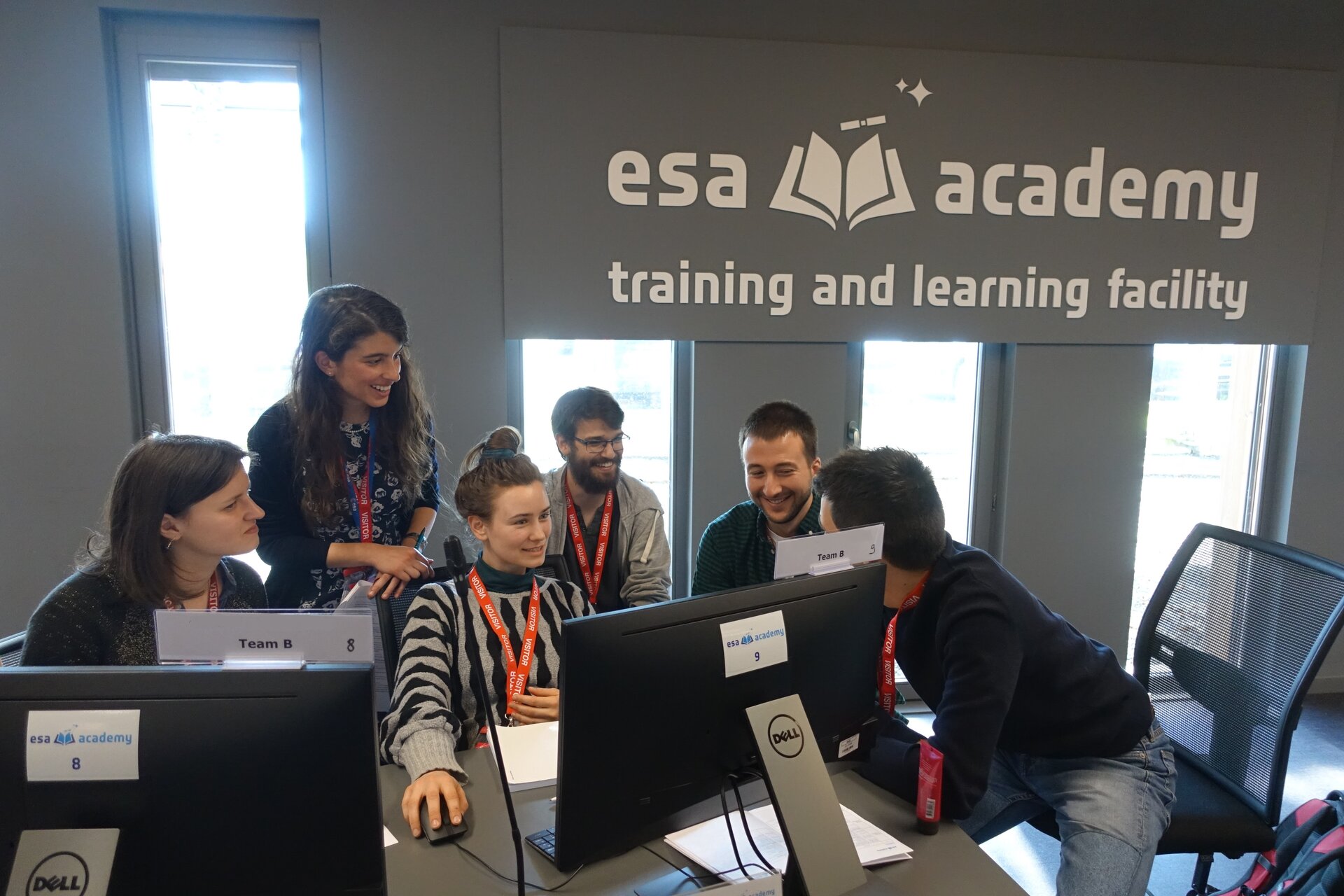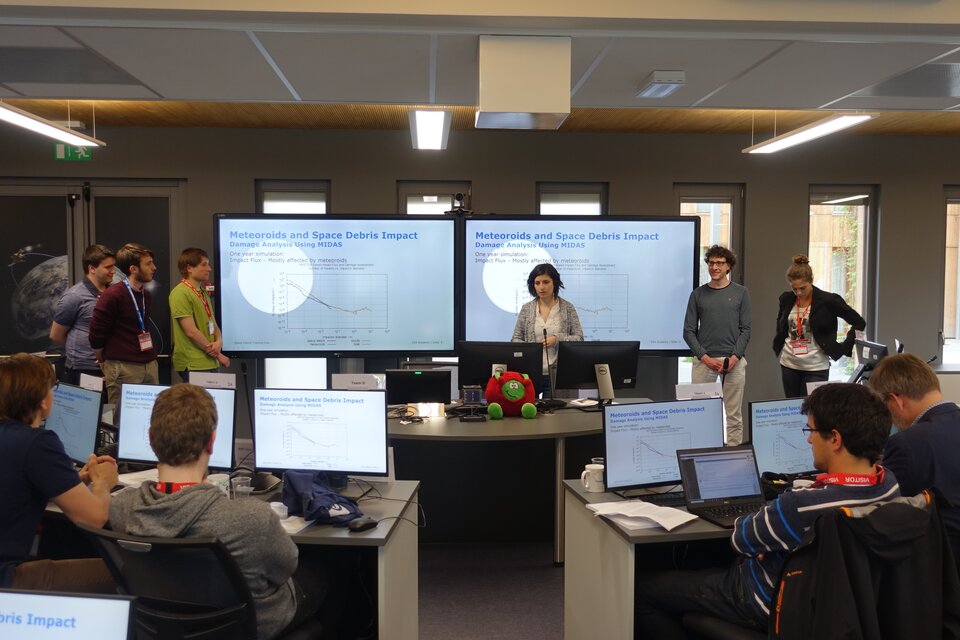Calling university students to participate in the Space Debris Training Course 2023
Space debris is a hazard to our satellites and spacecraft as well as a contributor to near-Earth space pollution. To help raise awareness of this issue, ESA’s Education Office is organising the fifth edition of ESA Academy’s Space Debris Training Course. The Training Course will be held at ESA Academy’s Training and Learning Facility in ESEC-Galaxia, Transinne, Belgium, between 4 and 8 September 2023.
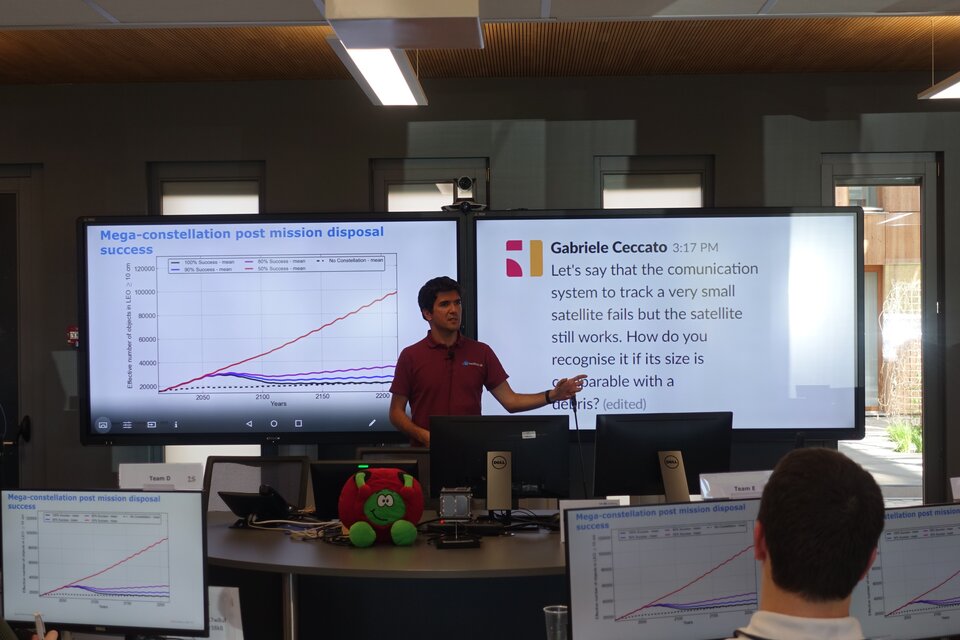
Participating University students will be provided with an introduction to the concept of space debris, why it is necessary to address this problem, and how the mitigation policies set by ESA apply to missions. Participants will not only learn about the space debris environment and mitigation technologies and future challenges such as large satellite constellations, but also about how it impacts spacecraft operations and potential future solutions. Current topics such as large satellite constellations and new space traffic management developments will be discussed. Taught by ESA experts as well as external experts in the sector, the course will be delivered through formal technical lectures complemented by hands-on exercises based on a real-life case study.
This training course is a collaboration between ESA’s Education Office and ESA’s Space Debris Office, which coordinates ESA's research activities in all major debris disciplines. These include measurements, modelling, protection, and mitigation. It also operates ESA’s collision avoidance system for a fleet of 20 spacecraft, implements space debris aspects in the Agency’s Space Safety programme (S2P) and represents ESA on space debris matters at international bodies such as the IADC (Inter-Agency Debris Coordination Committee) or UNCOPUOS (United Nations Committee on the Peaceful Uses of Outer Space).
Preliminary Schedule:
| Day 1 |
Introduction Forces Acting on a Space Object Space Debris Environment Mitigation Principles & Guidelines Group Project Session 1 |
| Day 2 |
Space Debris: Legal & Regulatory Aspects Deorbiting & Passivation technologies Space Debris Mitigation Context The Future of the Environment Group Project Session 2 |
| Day 3 |
Space Surveillance Operating in the Space Debris Environment Collision Avoidance Protection & Shielding Group Project Session 3 – Part 1 |
| Day 4 |
Aerothermodynamics during re-entry Simulation of Spacecraft Destruction during Atmospheric Re-entry Group Project Session 3 – Part 2 On-ground Risk Estimation Group Project Session 4 |
| Day 5 |
Design for Demise Active Debris Removal Group Project Session 5 Group Project Presentations Conclusion |
Who can apply?
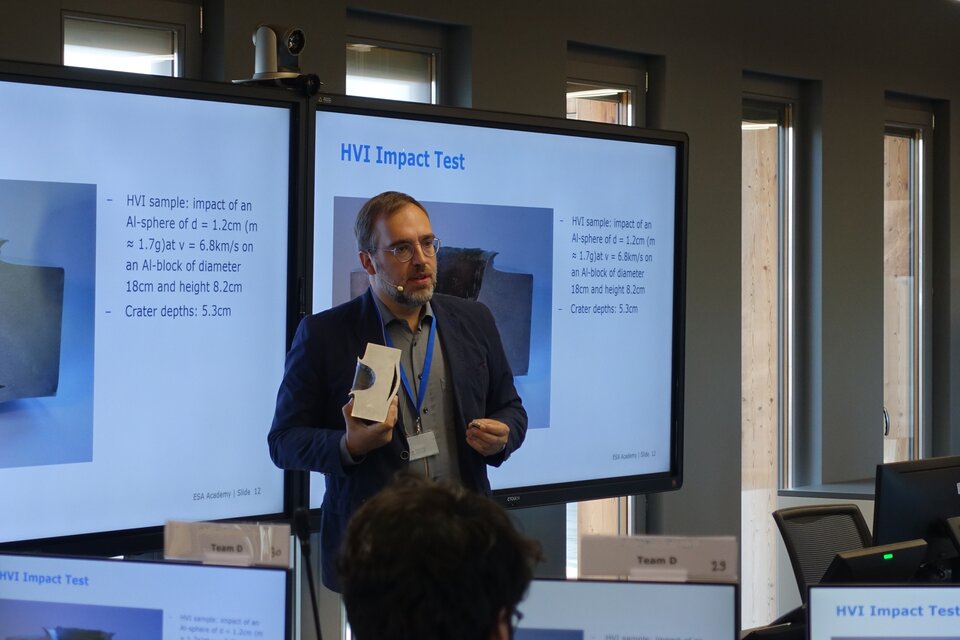
In order to participate, students must fulfil the following eligibility criteria at the time of application:
- aged minimum 18 years old. ESA Academy and relevant partners will only appraise applications from students who have no or limited professional experience in relevant engineering or space-related topics;
- be a citizen of an ESA Member State, Canada, Latvia, Lithuania, Malta, Slovakia or Slovenia;
- be enrolled as a Master or PhD student in a university for the year 2023-2024
- be studying for a scientific or engineering degree and have minimum knowledge of space technology.
Selected students will be required to attend the entire 5-day training course at ESEC. They will be sponsored by ESA to cover accommodation and meals, as well as up to 300 Euros for travelling to Belgium.Students participating in the Space Debris Training Course 2023 will be evaluated based on their group work throughout the week and the final presentation. Upon completion of the training course students and will receive a certificate of participation and a course transcript, allowing them to request ECTS credit(s) from their respective universities.
How to apply
- Fill in the application form;
- Upload a motivation letter (PDF, maximum 1 page, no images);
- Upload a CV (Europass format, PDF, maximum 2 pages);
- Upload a formal recommendation letter (PDF, maximum 1 page, including signature, no images) from a university professor or academic supervisor of current university (if it is not possible to receive the recommendation letter from your referee, please ask them to send a recommendation email to tlp@esa.int before the application deadline);
- Upload a copy of academic records (PDF).
All answers and documents should be in English (except academic records if not available).
The deadline for applications to participate in the Space Debris Training Course 2023 is 26 June 2023, 23:59 CET.
For more information, please contact tlp@esa.int.















 Germany
Germany
 Austria
Austria
 Belgium
Belgium
 Denmark
Denmark
 Spain
Spain
 Estonia
Estonia
 Finland
Finland
 France
France
 Greece
Greece
 Hungary
Hungary
 Ireland
Ireland
 Italy
Italy
 Luxembourg
Luxembourg
 Norway
Norway
 The Netherlands
The Netherlands
 Poland
Poland
 Portugal
Portugal
 Czechia
Czechia
 Romania
Romania
 United Kingdom
United Kingdom
 Slovenia
Slovenia
 Sweden
Sweden
 Switzerland
Switzerland



